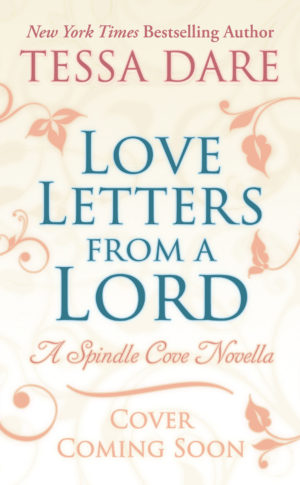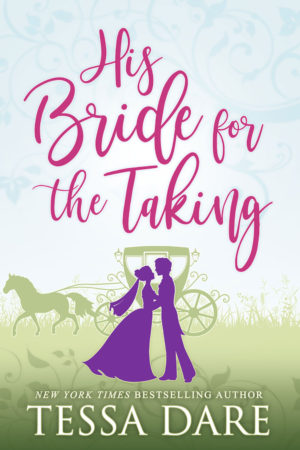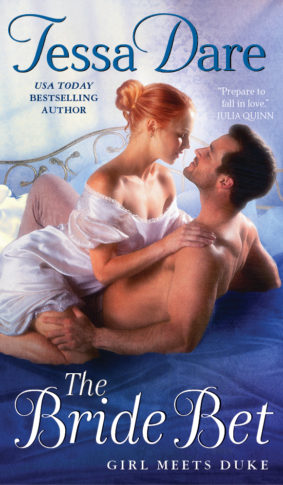|
We interrupt this Mother’s Day to say… I’m sorry.
|
There’s a pernicious rumor in Blogdom that I’ve heard a few times now. It goes something like this: The words “I’m sorry” are an anachronism, if you’re writing a Regency.
To which I say, “I’m sorry, but that’s just wrong.”
Some quotes from Pride and Prejudice:
Elizabeth, from The Proposal at Hunsford:
In such cases as this, it is, I believe, the established mode to express a sense of obligation for the sentiments avowed, however unequally they may be returned. It is natural that obligation should be felt, and if I could feel gratitude, I would now thank you. But I cannot — I have never desired your good opinion, and you have certainly bestowed it most unwillingly. I am sorry to have occasioned pain to any one.
From Darcy’s letter (THE Letter):
But from the severity of that blame which was last night so liberally bestowed, respecting each circumstance, I shall hope to be in future secured, when the following account of my actions and their motives has been read. — If, in the explanation of them which is due to myself, I am under the necessity of relating feelings which may be offensive to your’s, I can only say that I am sorry. — The necessity must be obeyed — and farther apology would be absurd.
Darcy, during the Second Proposal:
“I am sorry, exceedingly sorry,” replied Darcy, in a tone of surprise and emotion, “that you have ever been informed of what may, in a mistaken light, have given you uneasiness. I did not think Mrs. Gardiner was so little to be trusted.”
And I could go on and on. That word appears dozens of times in P&P alone. This book was written in the late 1700s to early 1800s, and first published in 1813. It’s as Regency as Regency gets. For heaven’s sake, it’s the the very origin of the Regency romance genre! So let’s quash this “I’m sorry” anachronism myth without apology.
If it’s good enough for Jane, it’s good enough for me.









May 13th, 2007 at 10:24 am · Link
LOL!!! I never heard that rumor in blogdom land. Isn’t it funny how something said or quoted can become ‘hard fast rules’ that then get marked against you (like say in contests). I honestly believe sometimes that that’s where we’ll find our harshest critics.
I believe there is a rumor out there about contractions. 🙂
May 13th, 2007 at 10:58 am · Link
Bev,
Contractions appear in P&P, too – but rarely, and they are spoken by characters Austen wants to set apart as less polished. Lydia, for example, uses contractions and exclamations such as “Lord!”, whereas the refined Mr. Darcy never uses either.
The Great Jane aside, as a reader I get annoyed when authors refuse to use contractions – it slows down the dialog and the pace of the overall narrative and just sounds stilted. Personally, unless I want to make a character sound particularly proper, I use plenty of contractions in dialog.
May 13th, 2007 at 10:59 am · Link
Geesh, the things we get hung up on. *shaking head saddly*
Alice
May 13th, 2007 at 11:09 am · Link
I have to say, people who pick on anachronisms without access to the Oxford English Dictionary are cruisin’ for a bruisin’.
I am going to be Very Very Sad when I lose OED access.
May 13th, 2007 at 12:40 pm · Link
I was, interestingly enough, looking into many things I’ve been told over the years, today, and was surprised to find most were fallacy. I think people just like to have something to say. And I also never heard that ‘I’m sorry’ was an anachronism. Interesting stuff.
May 13th, 2007 at 9:21 pm · Link
Thank you! I just saw this the other day and was freaking out! Phew!
May 14th, 2007 at 4:00 am · Link
I had never heard I’m sorry wasn’t correct, but was surprised to learn that ok wasn’t correct. I heard this on a documentary somewhere and it has stuck with me. I believe it didn’t come into use until the 20th century, if I remember correctly, which I probably don’t. But I do know it wasn’t used in the early 19th century.
May 14th, 2007 at 6:12 am · Link
Yay! I’d been seeing the “I’m sorry” debate rip through the blogosphere and am exceedingly happy to learn it’s a myth!
May 14th, 2007 at 8:31 am · Link
FWIW, my understanding has never been that “I’m sorry” to mean “it pains me” is incorrect in a Regency, but that “I’m sorry” to mean the equivalent of “Excuse me” or “I beg your pardon” is what’s anachronistic. “I am sorry” has an apologetic sense, but not an excusatory sense, if that makes sense *g! At least, that’s the impression I get from Etymology Online!
May 14th, 2007 at 8:44 am · Link
You know, Jacqueline, when you look it up in the Etymology Online Dictionary, you get this:
sorry
O.E. sarig “distressed, full of sorrow,” from W.Gmc. *sairig-, from *sairaz “pain” (physical and mental); related to sar (see sore). Meaning “wretched, worthless, poor” first recorded c.1250. Spelling shift from -a- to -o- by influence of sorrow. Apologetic sense is from 1914; as another way to say “excuse me” it is first attested 1972, from phrase sorry about that, popularized 1960s by U.S. TV show “Get Smart.”
Which I think is the root of this rumor – it implies that no one used the word “sorry” to apologize before 1914 – and that can’t be true. So I guess it’s a good reminder that this particular resource (which I use tons, dangit!) isn’t very reliable, unfortunately.
May 14th, 2007 at 8:47 am · Link
And I want to say, I don’t mean to single anyone out about it. Leigh’s blog last week was what brought it to mind, but I’ve seen this show up in comment trails on several blogs, including author blogs.
May 14th, 2007 at 8:56 am · Link
Well, here’s the problem.
Obviously, if something distresses you and you say so, you’re apologizing in some fundamental sense. There’s no difference in my mind between saying “It grieves me to inform you of the death of your father” and “I’m sorry to tell you of the death of your father.” They’re both expressing regret or sorrow and, therefore, apologetic. And I’m reasonably sure no one would try to tell you that “It grieves me to inform you” is an anachronism in a Regency *g!
What I think Etymology Online is getting at, though, is that before the 20th century, you wouldn’t walk up to someone on a street corner and say, “I’m sorry, but do you have the time?” Because THAT “I’m sorry” is the equivalent of “Excuse me” or “I beg your pardon” and before the 20th century, my understanding is that people didn’ use “sorry” in that way. They really meant “I am grieved” not “I don’t want to trouble you but…”
I think the issue with “sorry” is more that to the modern ear, the pain/grief/distress is virtually gone from the expression. People say it so often that it’s lost that punch. For that reason I’m careful about using it in my historicals–not because it’s wrong, but because it should be reserved for situations when the character really is grieved/pained/distressed. Or, at least, that’s my interpretation of the evidence I’ve seen.
May 14th, 2007 at 9:18 am · Link
This issue isn’t only about that phrase. It’s about (I think) those who deduct points or comment sanctimoniously or blog on matters in which they are in error.
For example when CM gets ignorant comments correcting her on legal matters, or perhaps this comment I received from a contest judge: “medical students wouldn’t have time to go on a weekend hike”. Of course the comment that a regency heroine couldn’t possibly think or say “bloody hell” is another great example.
If a contest judge believes they see an anachronism or any problem, they are right to point it out. But if they intend to deduct points, it should be a major error, and they should have a reliable source of information when making that call.
Otherwise, it would fall under the same category as minor punctuation errors or typos and should not be held against the author. And the judge needs to acknowledge that they’ve “heard” this but have not verified it to be true.
But when we get these kind of comments, I think it’s best to gripe about them to our CPs and then just laugh. Maybe catalogue them in the ignorant comments hall of fame. I know we’ve had a good laugh or two among our little group.
As for our WIPs, we want to be meticulous in our research and willing to acknowledge that at times, we too, (very rarely of course) are in error.
May 14th, 2007 at 10:17 am · Link
Amy, you make a good point about contest judging, but I honestly didn’t even have that in mind when I wrote this post.
I’ve seen this more than one place now, stated flatly that the phrase “I’m sorry” is an anachronism. Which is a) wrong, and b) IMO, potentially detrimental to good romance!
To get down and dirty with the etymology, Jacqueline, I’d argue that the Online Etym. Dict. is basically saying the word “Sorry” in and of itself (i.e. not as part of the phrase “I’m sorry”) was not used as an apology until 1914. In other words, if you had this exchange in a Regency:
“Look what you’ve done, you great oaf! You’ve trampled my prize rosebush!”
The earl shrugged. “Sorry.”
It more correctly should be:
“Look what you’ve done, you great oaf! You’ve trampled my prize rosebush!”
The earl shrugged. “Beg your pardon.”
The thing is, every writer has to find their own balance when it comes to writing period-appropriate dialog. None of us are writing exactly the way people spoke then, but some strive for greater authenticity for others. Personally, I prefer dialog that reads naturally, even if it’s a bit modern, to dialog peppered with “wot” and “blunt” and “yer”‘s. That’s just me.
My problem is that there’s this weird rumor circulating that you can’t let your characters say “I’m sorry.” And I’ll take P&P as evidence over any dictionary that people did say “I’m sorry” frequently, for all manner of minor and major offenses. Everything from “I’m sorry to leave so soon,” to “I’m sorry to leave you alone with that horrid Mr. Darcy.”
Imagine what the wholesale elimination of “I’m sorry” does to a good grovel scene, for example. The way this anachronism rumor gets bandied about, it would seem a writer must change:
“My love, I’m nothing without you. Forgive me, please. I’m so sorry.”
to
“My love, I am nothing without you. Forgive me, please. I am most heartily grieved.”
It’s just not the same! That’s why I’m on the “Save the Sorry” crusade. Not because I’m a big stickler for historical accuracy or a maligned contest entrant.
Because I want good grovel!
May 14th, 2007 at 10:27 am · Link
I use Etymology Online and I also have a great book The American Heritage Dictionary of Idioms. But, I’m sorry was never a phrase I thought to look up. Glad to know I haven’t made some terrible mistake, or should that be blunder?
May 14th, 2007 at 10:41 am · Link
LOL, Leigh. I think “mistake” is okay. But just to reiterate – I’m not trying to say everyone should look up every word they use in the OED before putting it in their manuscript. Not at all. I’m perfectly comfortable with a certain degree of anachronism.
The word “sex,” for example – it’s anachronistic to use this to refer to intercourse (Have sex with me) or to genitalia (his turgid sex) – but I see both all the time in historicals, and I don’t really care.
May 14th, 2007 at 11:28 am · Link
Tessa, I am with you on your campaign, in large part because the end of my second chapter requires the use of “I am sorry.”
Just like that: “I am sorry.”
“I am grieved to have caused you pain” would not work. “I apologize” also wouldn’t work.
And yes, “I am sorry” was used well and often back then, in the apologetic sense.
See this letter from 1791: http://books.google.com/books?id=D0pgSN7XNhkC&pg=PA364&dq=%22I+am+sorry.%22+date:1700-1840
May 14th, 2007 at 11:57 am · Link
I agree! But there are so many anachronisms bandied about these days. I read one commenter somewhere say:”A Regency era person would never say ‘get.’
I had to disagree, for, was it not William Shakespeare’s Hamlet who yelled the illustrious words “Get thee to a nunnery!” to his Ophelia.
But on the other hand, I read that ‘hi’ and ‘hello’ weren’t in usage until the invention of the telephone. I had no clue! It’s so embarassing. I had to go back and change a line or two. I’ve read it in Julia Ann Long’s books and so I just assumed it was correct.
May 14th, 2007 at 12:24 pm · Link
Tessa, you and CM have been total sanity savers for me of late. THANK YOU!
May 14th, 2007 at 12:39 pm · Link
No idea where the get thing comes from, but Candy on Smart Bitches claimed that it bugs her when get is used as an auxiliary verb.
Which the OED records as of the late 1600s. Huh?
May 14th, 2007 at 3:09 pm · Link
CM, I saw that on Smart Bitches too. I suppose people think it sounds too common?
May 14th, 2007 at 8:20 pm · Link
But I thought love means never having to say you’re sorry! 😉
May 15th, 2007 at 11:41 am · Link
Okay, here’s where the 1914 thing comes from (two OED comments):
Pained at heart; distressed, sad; full of grief or sorrow.
In later use freq. in weakened sense, and often employed in the phrase ‘I’m sorry’ to express mere sympathy or apology.
(and the “later use” is first attested:)
c1200 Trin. Coll. Hom. 117 He forbed his apostles..{th}at hie neren noht sorie.
(which is certainly later than 888, the first identified use of sorry)
BUT it adds much, much later on:
Add: [1.] d. ellipt. for I am sorry. colloq. (a) Expressing apology or regret.
1914 G. B. SHAW Fanny’s First Play 167 Sorry. Never heard of him.
In other words: it is only in 1914 that people dropped the “I am” from the “sorry” and had “sorry” stand alone as an apology.
May 15th, 2007 at 4:14 pm · Link
Well, there you have it.
The OED O-racle has spoken.